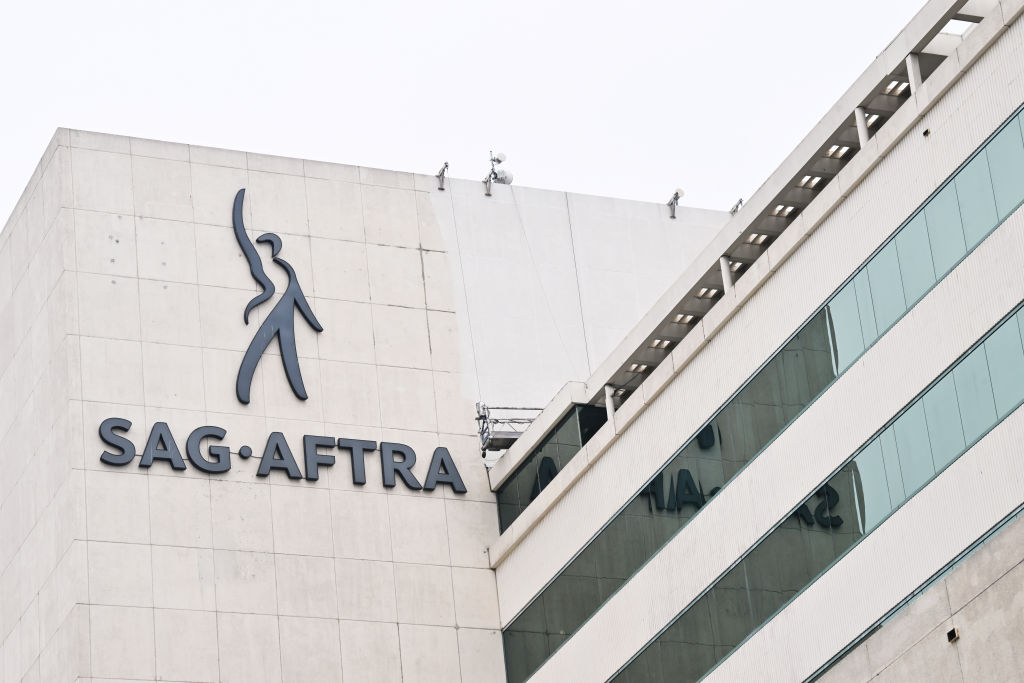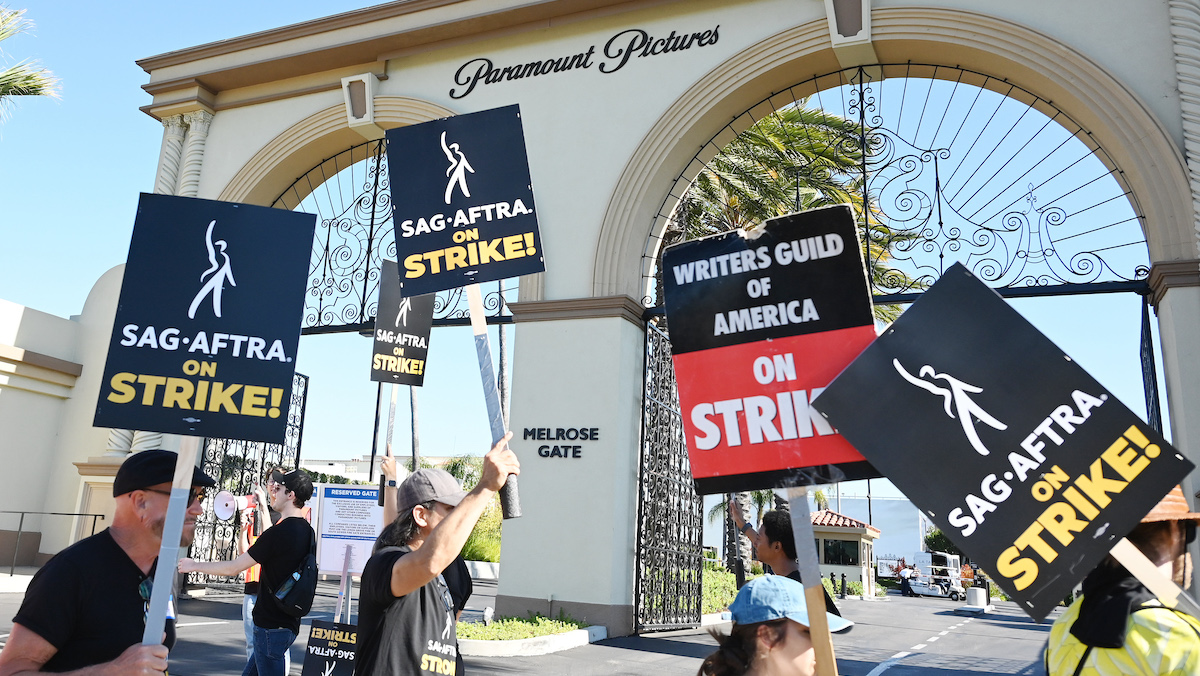The monthslong strike that put Hollywood to a halt will end Wednesday, the Writers Guild of America (WGA) announced on Tuesday.
After reaching a tentative agreement with the Alliance of Motion Picture and Television Producers (AMPTP), WGA's East and West councils voted unanimously to end the strike. Details on the new three-year minimum basic agreement have not been revealed.
The WGA announced the tentative deal Sunday night, following five consecutive days of meetings with leaders of the Alliance of Motion Picture and Television Producers, which represents the studios. No details of the three-year pact have been released, with the guild telling its members such details would be provided once it is vetted fully and put into final contract language by the negotiating committee, then approved by leaders of the WGA West and East branches.
Get Southern California news, weather forecasts and entertainment stories to your inbox. Sign up for NBC LA newsletters.
“What we have won in this contract -- most particularly, everything we have gained since May 2nd -- is due to the willingness of this membership to exercise its power, to demonstrate its solidarity, to walk side-by-side, to endure the pain and uncertainty of the past 146 days,'' WGA negotiating team members wrote in a message to union members Sunday night. ``It is the leverage generated by your strike, in concert with the extraordinary support of our union siblings, that finally brought the companies back to the table to make a deal.
“We can say, with great pride, that this deal is exceptional -- with meaningful gains and protections for writers in every sector of the membership.”
Although no specifics were immediately provided, the union has been steadfast in its push for protections against the use of artificial intelligence that could undermine writers' jobs. The union has also called for mandatory staffing levels on productions and for boosts in salaries and residual pay -- including higher pay based on the success of individual streaming programs.
The WGA went on strike May 2. They were joined on strike in July by the SAG-AFTRA actors union.
News of the tentative deal was quickly hailed by local elected officials.
“I am hopeful that this tentative deal meets the needs of the WGA members who have sacrificed so much during this difficult but worthy and necessary strike. With this deal, these past 140 days could protect writers’ livelihoods for decades to come,'' County Supervisor Janice Hahn said in a statement.
“After a nearly five-monthlong strike, I am grateful that the Writers Guild of America and the Alliance of Motion Picture and Television Producers have reached a fair agreement and I'm hopeful that the same can happen soon with the Screen Actors Guild,'' Los Angeles Mayor Karen Bass said in a statement. “This historic strike impacted so many across Los Angeles and across the nation. Now, we must focus on getting the entertainment industry, and all the small businesses that depend on it, back on their feet and stronger than ever before.”
On Monday morning, President Joe Biden even weighed in, saying he applauds both sides for reaching a tentative deal ``that will allow writers to return to the important work of telling the stories of our nation, our world -- and of all of us.”
“This agreement, including assurances related to artificial intelligence, did not come easily,” Biden said in a statement. “But its formation is a testament to the power of collective bargaining. There simply is no substitute for employers and employees coming together to negotiate in good faith toward an agreement that makes a business stronger and secures the pay, benefits, and dignity that workers deserve. I urge all employers to remember that all workers -- including writers, actors, and autoworkers -- deserve a fair share of the value their labor helped create.”
With the WGA reaching a proposed deal, attention is now expected to turn to SAG-AFTRA. There have been no known talks between the actors’ union and AMPTP since the strike began. But a WGA deal could be used as a template for an accord with writers, since both unions were focused on many of the same issues.
The AMPTP previously reached an agreement with the Directors Guild of America, avoiding a strike by that union.
The WGA negotiations with studios got testy at times. After a mid- August negotiating session, the guild lashed out at the AMPTP, saying the meeting had degraded into a brow-beating session pushing the union to accept the studios' latest offer.
The AMPTP subsequently went public with many details of its offer, a move the guild called an attempt to sow discord within the union.
Earlier this month, the WGA seemingly tried to employ a similar tactic, issuing a statement suggesting some traditional Hollywood studios should break ranks with the AMPTP and reach a deal directly with the writers’ union. The WGA suggested it had spoken with some studio executives who believe a deal could be quickly struck.
“So, while the intransigence of the AMPTP structure is impeding progress, these behind-the-scenes conversations demonstrate there is a fair deal to be made that addresses our issues,'' WGA negotiators said at the time.
“... We have made it clear that we will negotiate with one or more of the major studios, outside the confines of the AMPTP, to establish the new WGA deal.
“There is no requirement that the companies negotiate through the AMPTP. So, if the economic destabilization of their own companies isn't enough to cause a studio or two or three to either assert their own self-interest inside the AMPTP, or to break away from the broken AMPTP model, perhaps Wall Street will finally make them do it.”
The AMPTP, however, issued a statement of its own saying all of its members are committed to working within the alliance to reach a deal for all studios.
“The AMPTP member companies are aligned and are negotiating together to reach a resolution,” a statement from the alliance said. “Any suggestion to the contrary is false.
“Every member company of the AMPTP wants a fair deal for writers and ctors and an end to the strikes, which are affecting not only our writer and actor colleagues, but also thousands of others across the industry. That is why the AMPTP has repeatedly put forward offers that address major priorities of the WGA, including a last round of offers on Aug. 17 and 18.''
The dispute over who should speak for the studios seemingly opened the door for the current negotiations. The two sides got back together starting last Wednesday, in sessions believed to have been attended by the so-called “Gang of Four” group of top studio executives -- Netflix's Ted Sarandos, Disney's Bob Iger, Universal's Donna Langley and Warner Bros/Discovery's David Zaslav.
It was unclear if those executives attended all five days of meetings that concluded Sunday.



